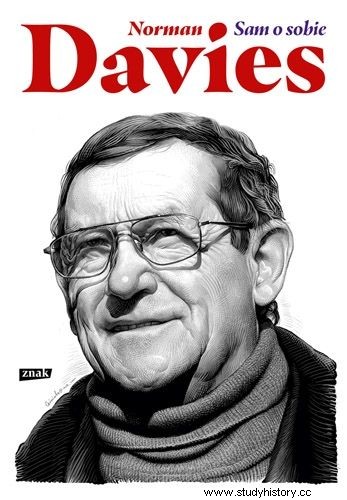Barbed wire entanglements, guards firing without orders and no entry with an "imperialist" passport? Nothing could be more wrong! The USSR might not welcome visitors from the West with open arms, but neither did it completely forbid them to look behind the Iron Curtain. What was the trip to the East like 50 years ago?
In 1957, the Russians sent Sputnik into space, and a pale fear fell on the Western world. It turned out that stories of white bears walking along the streets of the cities beyond the Elbe can be put into fairy tales . The Soviet Union and its satellite states were not only not a backward backwater of Europe, but they even surprised with the level of technology and armaments (or at least they gave the impression).
Civilization gap
On the wave of the sudden popularity of the Eastern bloc countries, masses of young people from Great Britain, Germany and France rushed to at least a glimpse of life behind the Iron Curtain. Among them was also Norman Davies - the future eminent historian, expert on the history of Poland.
 As he reports in the autobiography "Sam About Himself", for the first time he encountered this border between two worlds in the summer 1957 during a summer camp in Villach, Austria. From here it was not far to Slovenia, so with a group of friends he went along the mountain trail "to the other side".
As he reports in the autobiography "Sam About Himself", for the first time he encountered this border between two worlds in the summer 1957 during a summer camp in Villach, Austria. From here it was not far to Slovenia, so with a group of friends he went along the mountain trail "to the other side".
There was only one breach in this part of the chain in the rock face that could be passed through without ropes to the other side. (...) climbing a narrow ravine, I reached the very top and looked at the other side of the massif. The hills and forests of Slovenia stretched out before me. It turned out, however, that it is impossible to go further, because the path suddenly ended at the edge of a steep cliff.
Previously she must have descended to the Slovenian side, but the rocks she was running on were blown up. Above the chasm there was a carelessly compacted plywood board with the word "Miny" on it.
Eventually they managed to reach Yugoslavia (they even had visas) - only by train.
Under the watchful eye of the Soviet army
Two years later, Davies and a group of friends managed to penetrate the Iron Curtain even deeper. Bought from the Americans for 30 pounds from a closed military base in an original jeep he traveled through Eastern Europe to the Bosphorus. On the way he visited, among others Hungary, Yugoslavia and Bulgaria.
Although there were legends about the conditions of the communist countries in the West at the time, nothing could have prepared young people for a collision with socialist reality. It was even a problem to orientate on the route - because in Austria the signposts to Budapest ... disappeared . The historian relates in the book "Sam about himself":
On the Hungarian border, we crossed the Iron Curtain and encountered armed Soviet soldiers. We had to bypass anti-tank barriers to reach a large metal gate that blocked our way.
A jovial Soviet officer with whom we could not communicate in any language tore our insurance papers and told us to take out a policy which he himself indicated.
It was by no means the end of surprises. The visitors from the West in the - horrifyingly - American military car aroused the understandable interest of the local services. They were under constant surveillance. The soldiers did not even hide that when the guests passed their post, they were already calling to the next point - to warn their colleagues.
Welcome with vodka and bread?
Word spread quickly about the students who had crossed the Iron Curtain. Soon they became interested in "gentlemen in black leather coats" - agents of the KGB or its Hungarian equivalent. Norman Davies says:
They were polite to the point of exaggeration. (…) They started to insist that we drink for Manchester in an empty restaurant, where apart from us there was only a team of gypsy musicians. We vaguely remembered what happened next.
I passed out quickly - possibly due to something sprinkled in my drink. We woke up the next morning in the field next to our jeep. We had no doubt that our vehicle and luggage had been carefully searched, but we were relieved that it had been decided to take us out of Budapest, not arrest us.
A historian could count on a much warmer welcome in 1963, when he came to Moscow as part of a study trip. The visitors from Great Britain were then taken on a "tour" of schools and universities. They were amazed to see that all Russian students ... speak fluent English! Naturally, they quickly realized that the entire expedition had been ideologically prepared and made sure that the newcomers did not learn too much.
At the end of this propaganda journey, British scientists were put on a train to Warsaw. They spent a dozen or so hours in an overheated wagon that was locked shut (supposedly - for their safety). The window, locked from the outside, was opened by a Polish railwayman. As the historian sums up: "We asked him in broken Russian:» Where are we? «. And he, smiling broadly, replied:"In Europe" " .

Source:
Trivia is the essence of our website. Short materials devoted to interesting anecdotes, surprising details from the past, strange news from the old press. Reading that will take you no more than 3 minutes, based on single sources. This particular material is based on the book:
- Norman Davies, "Sam about himself", Wydawnictwo Znak 2019.
